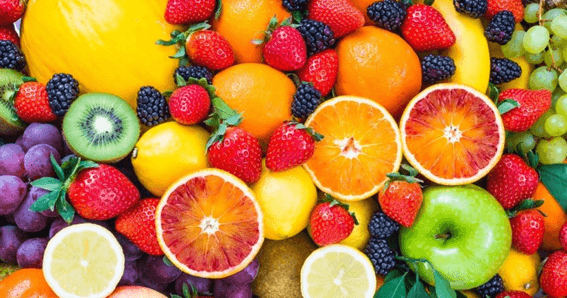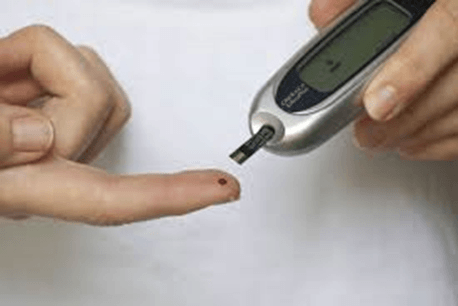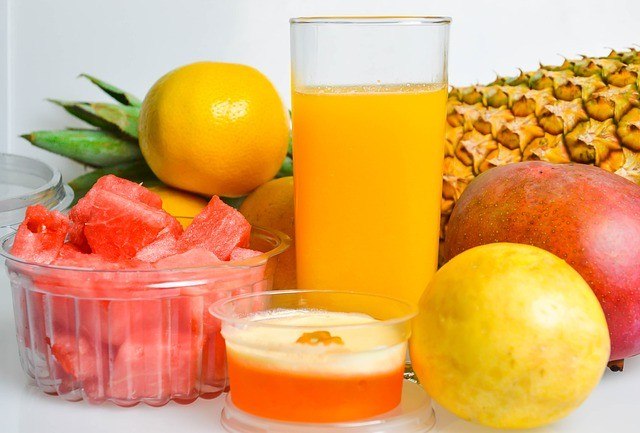Nutrition, lifestyle and environment (climate and environmental factors) have a huge impact on health. Mediterranean diet reduces cholesterol levels, blood pressure and risk of diabetes.
In addition, foods rich in vitamin C and E, Zinc, Lutein and Omega 3 have been shown to decrease the risk of age-related macular degeneration, cataracts and dry eye.
In which foods can we find these nutrients?
- Vitamin C is one of the many nutrients that act as an antioxidant. Citrus fruits are its main source. Other fruits, such as kiwi, melon, strawberries, mango and peach, and vegetables like asparagus, broccoli, brussel sprouts and cauliflower, also contain high amounts of this vitamin.
- Vitamin E also helps eliminate free radicals. In addition, it has a beneficial effect on the immune system. This vitamin can be found in sunflower seeds, almonds, hazelnuts spinach, oil and avocado.
- Zinc is found in protein-rich foods such as red meat. Nuts, legumes and eggs are other important sources of zinc. It is important to take this nutrient because a high concentration of zinc is needed in the retina and also in other parts of the body such as hair and nails.
- Lutein, together with zexatin, are nutrients that are part of the so-called carotenoids, pigments that give color to vegetables. These nutrients can be found in spinach, broccoli or asparagus and also in colorful fruits such as peach, mango and papaya. Lutein is also a nutrient in carrots, which contributes to night vision and helps reduce the chances of macular degeneration or cataracts.
- Omega-3 long chain polyunsaturated fatty acids (EPA and DHA) are considered essential in our diet. The most important source is fish, mainly blue fish: sardines, tuna, mackerel, salmon, and anchovies.
How is nutrition linked to eye diseases?
ARMD
Age Related Macular Degeneration (ARMD) is a very common disease whose main risk factor is advanced age. ARMD is the most common cause of vision loss in developed countries among people over 65 years old. It is characterized by the appearance of progressive and degenerative alterations in the macular area (the central part of the retina).

How is ARMD linked to nutrition?
It is believed that, in addition to genetic predisposition, there are various environmental factors that have a significant role in the disease:
- The protective effect of antioxidants has been proved by multiples studies. Some of these substances are found in food. In recent years, several studies have shown that changes in diet and the administration of certain substances can affect the incidence and severity of disease.
- Obesity and an unbalanced diet can contribute to the development of ARMD.
- The ingestion of high doses of vitamin C and E, beta-carotene and zinc supplements during the progression of the disease slows down ARMD up to a 25%, both in its dry form and wet form.
- There are several epistemological studies that suggest that a high ingestion of omega-3 fatty acids is associated with a lower incidence of ARMD, while saturated fat intake seems to increase it.
- The relative risk of ARMD is 2–3 times higher in smokers when compared to non-smokers.

CATARACTS
A cataract is a opacity in the transparency of the lens of the eye and can make tasks such as reading, driving at night or seeing facial expressions difficult. This pathology usually appears in older people and can result in a loss of vision.
How is cataract linked to nutrition?
Several studies have shown that a diet rich in antioxidants can reduce the risk of cataracts:
- Antioxidants are nutrients that delay oxidation, the main cause of aging or cell death.
- In case of the eyes, oxidation produces changes in the proteins and lipids of the crystalline lens, producing a clouding of the lens.
- Foods containing Vitamin A, C and E, carotenoids or selenium, such as fruits and vegetables, are considered antioxidants.
- It has been proven that supplements containing antioxidants do not help prevent cataracts and can sometimes have adverse effects.
DRY EYE SYNDROME
Dry eye tends to cause discomfort such as stinging, foreign body sensation and itching. It may be caused by poor tear production or poor quality tears, which do not fulfill their function of moisturizing and protecting the eye.
- While artificial tears and medicines are very effective, a diet rich in Omega-3 and Omega-6 is also recommended to alleviate pain.
- Supplements for these nutrients are also effective for dry eye treatment, although it is necessary to comment it previously with the ophthalmologist.

Diabetic retinopathy is a disease resulting from diabetes due to the progressive alteration of the blood vessels that nourish the retina. It usually affects both eyes and, in severe cases, can lead to blindness.
- In diabetes, sugar levels are high and can cause health problems. It is important to avoid foods that trigger sugar levels.
- Some of the foods recommended in these cases are muesli cereals, brown rice or nuts.

Current preventive treatments aim to recover the balance between oxidizing substances and antioxidant substances. That’s why it is so important to follow a healthy diet with a high consumption of fish, vegetables, fresh fruit and nuts.
More information
- Diet and nutrition. American Academy of Ophthalmology
- The benefits of fish oil for dry eye. American Academy of Ophthalmology
- Reducing the Genetic Risk of Age-Related Macular Degeneration with Dietary Antioxidants, Zinc and Omega-3 Fatty Acids. Arch Ophthalmol, 2011
- Nutritional supplements for age-related macular degeneration. Curr Opin Ophthalmol, 2010


Do you have any questions?
Contact us or request an appointment with one of our specialists.